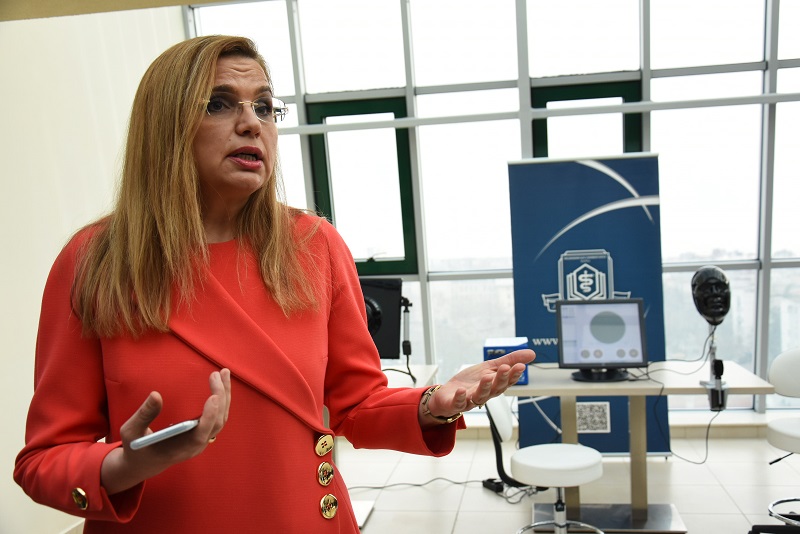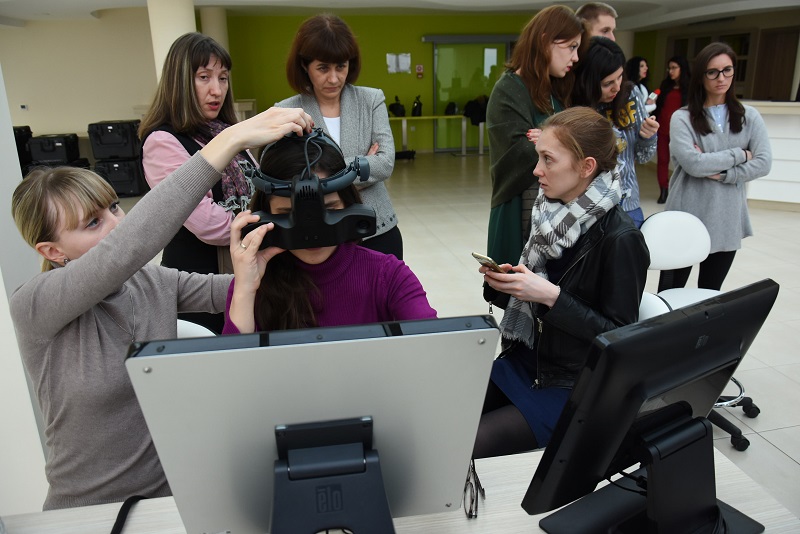A three-day training session with simulators for diagnostics and surgery in Ophthalmology has been launched at MU - Varna. Since 2010 a basic course for ophthalmologists from all over the country has been conducted at MU - Varna, but in 2018 the first nationwide training with diagnostic and surgical simulators was launched. "More than 80 people will be trained during the course with ophthalmic simulators," said Prof. Dr. Hristina Grupcheva, Vice Rector of MU - Varna and Head of the Department of Ophthalmology and Visual Sciences.

Ophthalmology is one of the most dynamically developing medical specialties due to the fact that we receive more than 90% of the information from the surrounding environment through our eyes, and the preservation of the eyesight is one of the most important prerequisites for a good quality of life. Consequently, high technologies, which are dominating in Ophthalmology, require a high level of training. The Department of Ophthalmology and Visual Sciences at Medical University - Varna boasts its half-century training tradition at different levels. However, one of the major priorities is training young specialists and postgraduates from across the country and Europe. There are scores of initiatives and training events, organized by the Department or conducted in partnership, but undoubtedly, the use of virtual reality in training is an innovation with a direct benefit.
One of the diagnostic simulators provides the opportunity for direct ophthalmoscopy, and it enables trainees to go through the entire physical examination process in a dynamic, realistic environment - the patient is blinking, moving his eyes and reacting to light. The other diagnostic simulator provides the trainees with the opportunity to master the art of indirect ophthalmoscopy to the fullest extent. After creating basic skills, virtual patients with pathological changes are available at all times.
Trainees can practise on them independently and as frequently as it is necessary, and each virtual examination is evaluated objectively. Both the learner and the trainer get information on the progress of the skills and the need for further training in a particular aspect.

Undoubtedly, the hit is the surgical simulator, which has two modules for cataract and vitreoretinal surgery. Vitreoretinal surgery is the most serious ophthalmic surgery - it involves the posterior segment of the eye, i.e. the most difficult to access areas of the eye - the vitreous body and the retina. Cataract is the most commonly performed surgical intervention on a global scale. The technology of this operation is constantly developing. This requires not only the acquisition of surgical skills but also their continuous improvement. Realistic simulations of cataract and vitreoretinal procedures increase the experience of learners at each level without posing a risk to a real patient. Procedures with varying degrees of complexity are available at any time through the surgical simulator - regardless of the flow of patients. The device improves the capabilities of making surgical decisions and the manual skills through a wide range of surgical tasks.
At the end of each training task the simulator provides the learner with a detailed summary of her performance. The training system records various parameters related to the work with the tools and microscope, the surgical efficiency and treatment of tissues. This allows learners to focus on their weaknesses and to systematically improve their skills.
The main advantages of virtual training are fewer complications in real intraocular surgery, realistic experience and acquisition of skills, unlimited independent practice, competence assessment and online training.
Simulators have long been used in aviation, ship and automobile navigation systems, and other industries. Their popularity has increased tremendously in medicine, especially over the last decade. Undoubtedly, this is the future, and the sooner we adapt to it, the more effective and safer medical training will be, and in particular in Ophthalmology.
